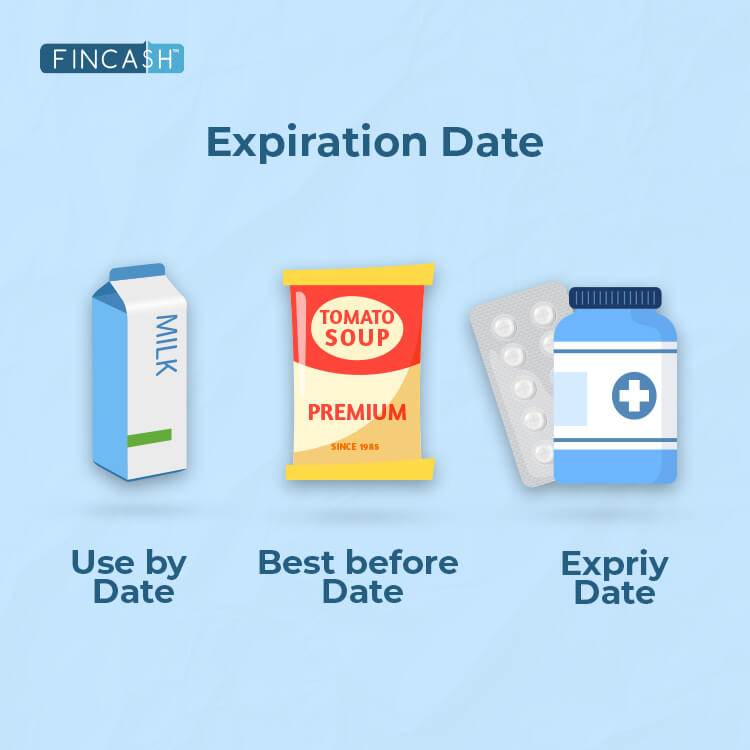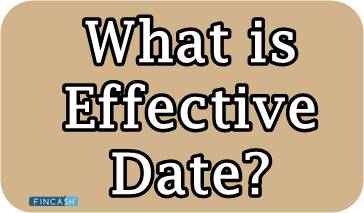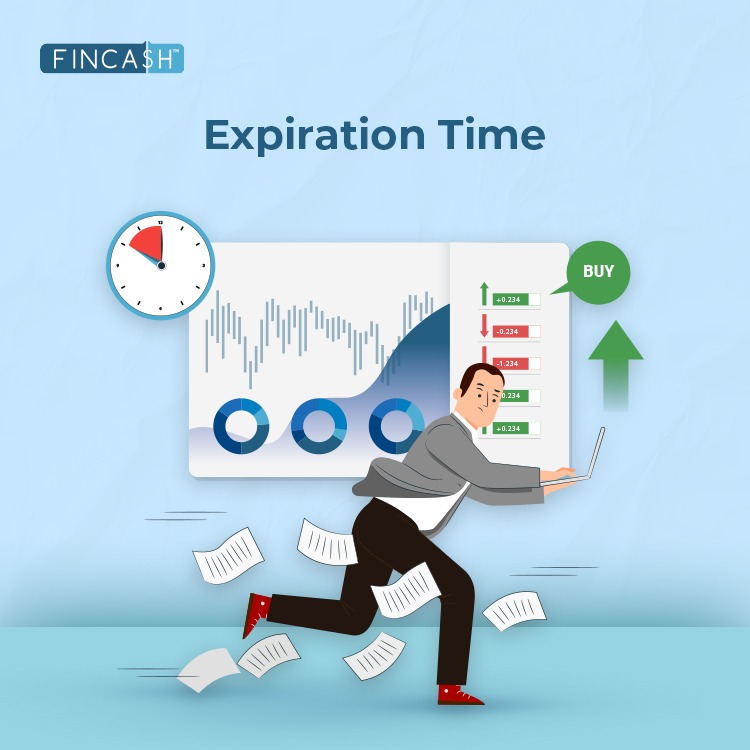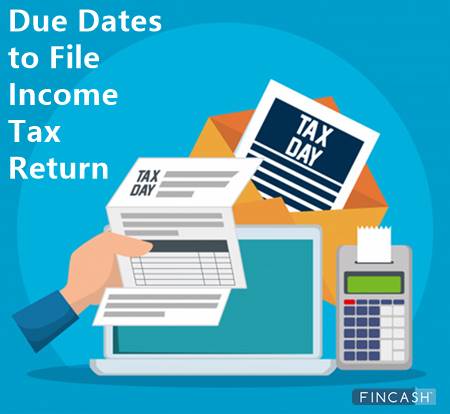
Table of Contents
Expiration Date (Derivatives)
Understanding the intricacies of expiration dates in derivatives trading is fundamental for investors. Expiration dates play a pivotal role, especially regarding options and futures contracts.
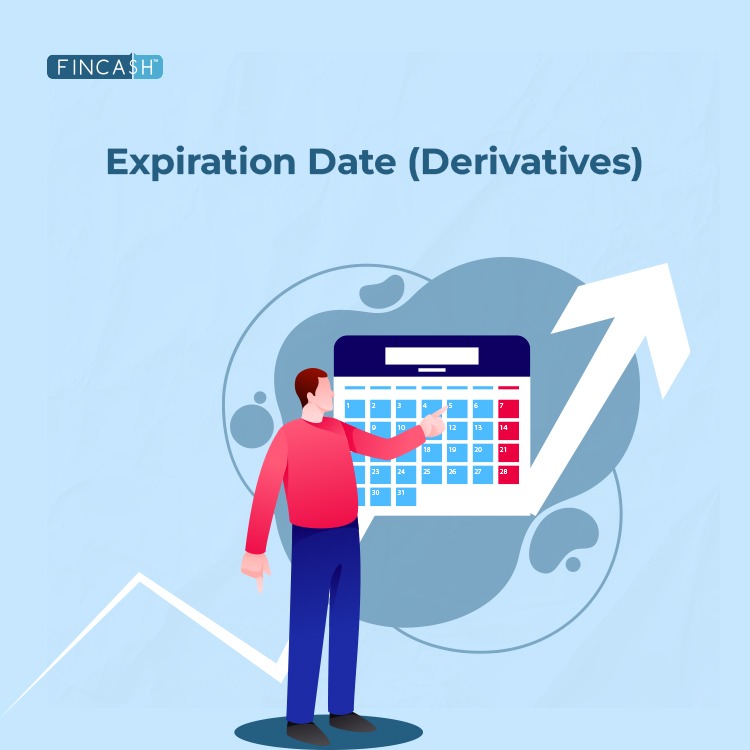
Expiration dates serve as the culmination point for derivatives contracts, delineating the last day of their validity. In options and futures, these dates carry immense importance, determining the fate of the contract and its financial implications for investors.
What are Derivatives?
Derivatives are contractual agreements between two parties, deriving their value from the performance of an Underlying asset such as stocks, commodities, Bonds, indexes, or currency. They are commonly utilised for either hedging, aimed at risk reduction, or speculation.
The three primary categories of derivatives encompass:
- Forwards and futures
- Options
- Swaps
Significance of Expiration Date in Options and Futures Contracts
Here is how the expiration date is essential in options contracts and futures contracts:
Options Contracts: In Options Trading, expiration dates mark the deadline for the execution of the contract. It is the point at which the option holder must choose whether to exercise the option or let it expire. For investors engaging in the options Market, understanding these dates is crucial for making strategic decisions.
Futures Contracts: Futures contracts, prevalent in commodities and indices trading, also have expiration dates. These dates signify the termination of the contractual agreement between the buyer and seller. Investors need to be mindful of these dates to manage their positions effectively.
Check Here!
Monthly Contract Expiration
One of the most prevalent types of options, frequently traded by investors and traders alike, is characterised by monthly expirations. These contracts culminate on the third Friday of every month, representing the standard option for many individual investors. Key features of monthly contracts include:
Predictability: Monthly options present a reliable, cyclical trading pattern, appealing to investors for devising longer-term strategies.
Liquidity: Given their longer presence in the market than weekly options, monthly options typically boast higher liquidity, facilitating smoother entry and exit from positions.
Variety: Monthly options cover underlying assets, stocks, exchange-traded funds, indexes, and commodities.
Lower Time Decay: Monthly options generally experience a more gradual Time decay than their weekly counterparts, resulting in a slower premium erosion.
Strategic Planning: The extended lifespan of monthly options allows for greater flexibility in crafting various strategic trading approaches.
Weekly Contract Expiration
For those seeking a swifter pace in trading, weekly options provide an alternative. Unlike their monthly counterparts that conclude on the third Friday of each month, weekly options typically expire every Friday, yielding four or five trading opportunities in a single month. Key features of weekly options encompass:
Flexibility: Weeklys allow traders to customise strategies to specific events like Earnings announcements, economic data releases, and geopolitical developments.
Lower Premiums: Due to their shorter lifespan, weekly options typically feature lower premiums than monthly options, rendering them more cost-effective.
Higher Time Decay: Weekly options undergo a more accelerated time decay, generally higher. This translates to a quicker erosion of the option's value as expiration nears.
Quicker Turnaround: The concise lifespan of weeklys enables traders to promptly react to market shifts, although this heightened Volatility comes with increased risk.
Daily Expiring Options
Catering to short-term trading enthusiasts, daily expiring options, also known as Zero Days To Expiration options (0DTE), reach their conclusion at the close of each trading day. These options are favoured by those aiming to capitalise on intraday and overnight market movements. Key features of daily expiring options include:
High Liquidity: Daily options commonly witness substantial trading volumes, especially for actively traded underlying assets, leading to narrower bid-ask spreads.
Extremely Short Life Span: Expiring at the close of each trading day, daily options are well-suited for day traders or those seeking to hedge short-term positions.
Rapid Time Decay: Experiencing peak time decay, daily options undergo swift devaluation throughout trading.
Intense Volatility: Daily options exhibit heightened sensitivity to news and market fluctuations, making them potentially riskier yet more rewarding for traders attuned to rapid market shifts.
Key Considerations for Investors
Jotted down below are some things to keep in mind before Investing your money in the market:
Expiration Cycles
Different derivatives have varying expiration cycles. Monthly options, for example, have a specific expiration date each month. Investors need to know these cycles to align their trading strategies with the expiration dates.
Impact on Trading Strategies
Expiration dates influence trading strategies. Investors employing options strategies, such as covered calls or straddles, must Factor in the expiration date. Whether seeking to capitalise on price movements or hedge positions, understanding how expiration dates shape strategies is crucial.
Risk Management
The culmination of a derivatives contract brings inherent risks. Investors need robust risk management strategies to mitigate potential losses. This includes decisions on whether to roll over positions, exercise options, or let contracts expire, all contingent on expiration dates.
Conclusion
For investors navigating the derivatives market, expiration dates are critical milestones. Whether engaging in options or futures trading, a clear understanding of these dates is indispensable. From regulatory compliance to strategic decision-making, expiration dates shape the dynamics of derivatives trading. By staying informed, adopting sound risk management practices, and aligning strategies with expiration dates, investors can confidently navigate the derivatives market's complexities and maximise their investment outcomes.
All efforts have been made to ensure the information provided here is accurate. However, no guarantees are made regarding correctness of data. Please verify with scheme information document before making any investment.
